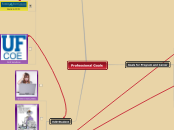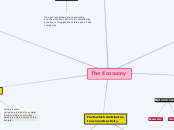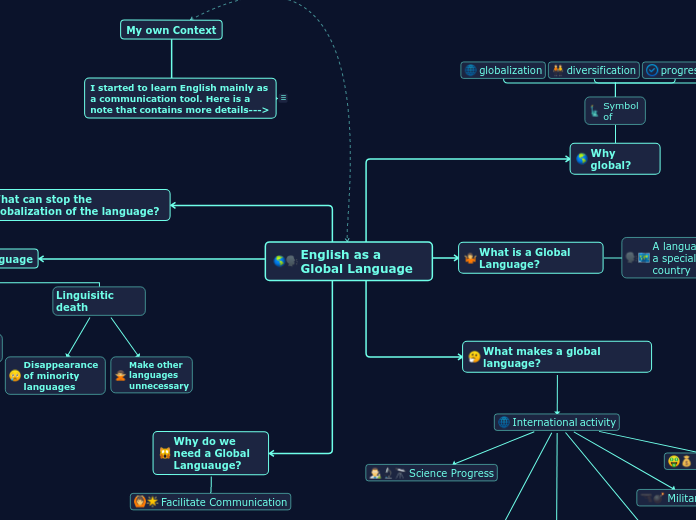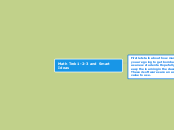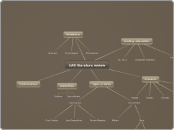Past
Now
Future
Professional Goals
EdD Student
Areas of Specialization
I hope to make good choices for courses that will help me better pursue my research interests and make the jobs I may pursue in the future more accessible. I expect that courses such as Instructional Design and Educational Media as well as Issues and Current Research in Educational Media will be very beneficial, but I also hope to explore courses in Blended Learning Environments, Professional Development and Teacher Learning, and Assessment in Higher Ed.
Balancing Work and School
Though I am in a great place in my career, I find myself wishing I had fewer responsibilities while in the program. I am training as a process facilitator for the writing area of institutional effectiveness (which basically means training to learn how to organize and submit research proposals each year for my department), I am a co-chair of the Letters Council, the campus representative for the FSCJ chapter of the Association of Florida Colleges, a member of the Academic Foundations Council (the College-wide council for dev ed), and I just submitted my continuing contract notebook.
Most of my service is not demanding all at the same time, but I hope to be able to continue to excel in my career and give my all to the EdD program as well.
Old-fashioned Learner
I enjoy exploring technology, and I frequently learn how to use new tools by actively using them, but more theoretical concepts are different to me.
I need the act of highlighting and writing out notes to remember difficult information. As a result, I have most of the materials in two forms, in print so I can learn and in PDF so I can easily search readings.
I also learn by writing essays. If I can't explain a connection in writing, then I don't understand it as well as I should.
Online Insecurities
Teaching online is not like learning online, and I have always taken courses face-to-face. I get a lot from in-class discussions though it is a challenge for me to participate being a bit introverted, so in an online class, my "voice" would be "heard" and I enjoy online discussions, but online classes, in my experience, are much more time-consuming than face-to-face classes.
I worry about being able to navigate the courses, find the materials, and about being able to manage my time.
I no longer procrastinate as I did when I was 18 in college, but balancing priorities is very challenging.
Professional Journey
Find Solutions
I decided to apply to graduate school, specifically educational technology, because I have all of these ideas for sharing knowledge on writing well in a variety of situations that I know can be shared through technology. I want to help faculty become more comfortable using resources to improve their students' learning.
But I don't have the background that would allow to articulate how I know what strategies would work. Yet.
I want to research the tools that are out there and how they can work for students. I want to create an online environment just as engaging as my classroom.
Back to FCCJ
The name had changed to Florida State College at Jacksonville, and the strategy for delivering developmental courses had also. I was hired as a full-time faculty member to teach developmental writing due to my experience in student success as an advisor and due to my familiarity with the technology now required to accompany developmental classes.
For every two hours of "traditional" instruction, students had to spend two hours of class time (and four hours outside of class) working in the online program for their course.
On Course
I went to a four-day On Course workshop, which was facilitated by the author of the On Course textbook, Skip Downing. He had become discouraged after teaching English for several years, went back to school to study psychology and wrote the On Course book for student success courses but with faculty and staff workshops to show how the principles could be applied across disciplines and in Student Affairs.
The workshop was to teach how to use the book and to better understand how to facilitate the activities, so for four days, it was like I was a student again, reevaluating how I saw myself, my motivation, and how I could take control of my future by controlling my choices.
I adopted the book as a reader for my college credit composition courses.
Senate Bill 1720
Made college placement testing optional for students who graduated after 2007. This was passed in 2012, the year before I began applying to graduate programs.
We created new courses, tried to rethink curriculum, piloted several new types of courses without many clear goals in mind other than how to write the curriculum because the bill was coming and the College had to have options.
English faculty at all levels seemed to think technology would be the solution, but they thought that they could just single a student out in a regular college-class, put him or her on a skill and drill software and solve all writing problems.
Conferences
I took full advantage of the special funds set aside for developmental writing faculty and attended several conference, discovering well-known controversies surrounding writing instruction and grammar. I also learned more about the different uses for technology and began to learn, indirectly, about some of the theories related to learning and instructional design.
I wondered how I could have been teaching for so long and never have encountered these issues.
Change from Within
I discovered that all full-time faculty in developmental writing (and reading) disagreed with the effectiveness of the approach we had to use, but the system (the Academic Success Center) won awards because of increased success rates in math and minimal changes in the other subjects.
But I wanted to change things...
Career Change
Teaching for so many different schools led to a burnout. I didn't feel I was doing a very good job anymore as I would be teaching sometime seven writing classes at one time, and I was frustrated with distance learning and my own lack of skill in creating interesting lessons for Blackboard.
I applied and was hired as an academic advisor in the office where I once tutored.
Office Technology Expert
I used much of my newly found free time to explore technology and used it to produce workshops, learn how to update the office's website, and develop lessons for the new Student Life Skills course that would be taught be advisors.
I just couldn't stay away from teaching.
Full Time and Part Time at FCCJ
I was a full time tutor at FCCJ and was given a part time adjunct load of developmental writing classes. I taught from the book a lot, but since I tutored, I had each student meet with me for tutoring. I noticed they seemed to be bored in the classroom. I think I was a boring teacher.
Fully Online
My husband and I moved to Sri Lanka which meant quitting my full-time job and teaching completely online and for multiple schools to supplement my income. Some schools required I use pre-built shells. All I was there for was to grade the assignments and it didn't matter if I disagreed with the content. Other schools allowed me complete academic freedom. This experience was significant in that I felt completely isolated from everyone: my family, friends, colleagues, students, etc. I wondered if my students also felt isolated and if it mattered to how they performed in the class.
Training to Teach Online
I completed an online instructor certificate program through the College's professional development office and agreed to Beta test developmental writing curriculum for online developmental writing classes
Master's of Arts: Finished
I had to move to Florida before completing my Master's. Though only six of credits transferred, I wanted to finish so I basically started over. Taking more classes from different perspectives made me very interested in the differences of teaching styles at the two institutions. I continued tutoring and made a connection with my supervisor's spouse who taught at Florida Community College at Jacksonville
Master's: Take 1
I began my master's degree as a graduate assistant in the writing tutoring facility, a very new addition to the program in 2002. I tutored mostly students in classes my colleagues, teaching assistants, taught which were populated by students who had tested into remedial composition classes.
Advanced Grammar
I felt inadequate as tutor and had never been directed to any English education courses, so I took an advanced grammar class (an undergraduate class) while in my graduate program in order to be able to explain to my tutees how to fix what they were doing wrong.
Good Student
I was always a pretty good student. I enjoyed learning and was usually motivated to do my homework on my own, particularly once I got to high school. I was unprepared for the differences in high school and college, but I adapted quickly
Bachelor's Degree
I began by majoring in psychology. I was interested in how people think in the very broad sense. I was dissuaded from studying English and from the teaching profession by observing my mother, a long time employee of the public school system. However, I loved my English classes and discussing literature, writing, and communication, so I switched.
Goals for Program and Career
Present
Conference
I hope to be one of those adding to the circulation of knowledge by having a paper accepted for a major conference. I hope to hone my research skills and have something to present next year (perhaps with one or more of my classmates). I am hoping that some of the group activities may lead to collaboration on a conference paper.
Publish
Peer-Reviewed
It has been a professional goal of mine to publish, but there never seemed to be the time or circumstance. Now that research is a regular part of my life, I hope to write something worthy of publication in a peer-reviewed journal. I would very much enjoy an opportunity to co-author as well with one of the faculty whom might share an area of interest and/or with one or more of my classmates.
Research Interests
Teaching Teachers
I really enjoy doing workshops for other faculty members, and have seen how some of my sessions on the iPad have a made a difference in how people approach its use for their courses, so I also have an interest in faculty development.
The issue for most faculty members is time. The face-to-face workshops are not often well-attended though I have often heard people saying, "I wanted to go to that one" in reference to many of the workshops related to technology.
I would like to study the success of a series of interactive, online workshops that stay open and allow for faculty to participate as their schedules allow, open but not massive.
Bridge between College and High School
Though I am less certain how I would go about my next interest, I would like to study whether students who test into remedial English and/or on the PERT their junior year can be made college-ready through MOOC facilitated by multiple developmental college faculty.
I'm not certain this would even be legal as high schools are required by law to provide postsecondary preparatory instruction for students. I don't know if there would be a way to work with the high schools to offer the MOOC as an alternative.
Self Organized Learning Environments
One area I am interested in studying is the success of self-organized learning environments in higher ed.
I would be curious to see if online developmental writing students (who typically do not perform well) would have improved success if the course were to be administered as a SOLE or administered in the traditional way with the support of a SOLE or administered the traditional way with required participation in a SOLE
On a slightly different track, I would also be interested in studying these elements for face-to-face developmental writing students and college writing students (hybrid courses) since most developmental students are opting to go straight into college writing courses.
Career Interests
Educational Technology Professor
I could also see the possibility that after my years in the program, I might change disciplines. Having primarily taught freshman and sophomore level courses for higher ed, I am interested in challenging myself by obtaining a position where I could teach graduate courses in Educational Technology.
Assistant Professor of Educational Technology
our initial assignment will include teaching, at both undergraduate and graduate levels, as applicable; course and/or curriculum development; research/scholarship; involvement on College and University committees and/or initiatives; as well as duties as assigned. Florida Gulf Coast University is a comprehensive university dedicated to quality education, research, and service. All facultyare expected to be excellent teachers, responsive to changing professional needs; committed to innovative delivery of instruction resulting in improved student learning; committed to effective use of technology including distance learning; produce peer reviewed scholarship; andprovide service to the College, University and Community. Teaching assignments may be on the main campus or at off-campus sites within ourregion.
Teaches at the graduate and undergraduate level; course and/or curriculum development;research/scholarship; serves on College and University committees and/or other initiatives; and other duties as assigned.
Associate Director Online Course Design
If I do later decide to leave the classroom, I could see myself working with faculty, learning technologists, assessment and media experts to develop effective online and hybrid courses.
Associate Director - Online Course Design
The Center for Advancing Teaching and Learning Through Research at Northeastern University seeks an Associate Director for Online Course Design to support faculty across disciplines in the design and development of online and hybrid courses. Projects will be carried out in a team-based environment, including learning scientists, instructional technologists, assessment experts, and media/academic technology staff. The Associate Director will be expected to guide faculty through a course design process that incorporates principles of constructive alignment and applies evidence-based principles from the learning sciences to design online and hybrid courses that enable engaged and meaningful learning. The person in this position will also support ongoing programming of the Center.
English Professor
I can see myself being satisfied in my current position as an English professor, but I would want the added responsibilities of creating/facilitating an online learning environment open to remedial and college level writing students for additional help from college professors, similar to a drop-in tutoring environment but one in which students and faculty interact in a more supportive (less punitive) environment.
I would also like the added ability to offer workshops on the different types of learning environments writing faculty can build based on how they expect their students to learn
